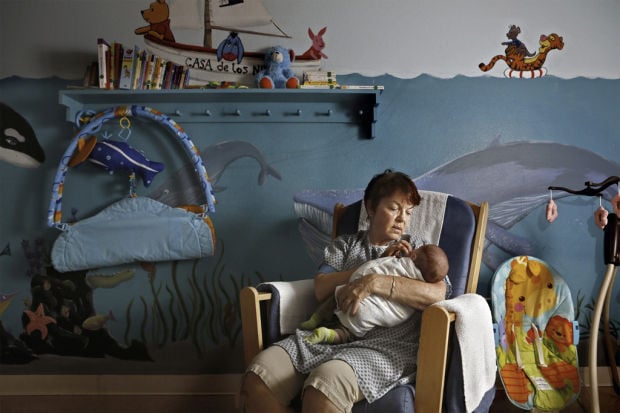The following column is the opinion and analysis of the writer:
Faced with the fact that COVID-19 led to a drop in calls to Arizona’s child abuse hotline but children are being torn from their families at the same high rate as before, Arizona Department of Child Safety Director Mike Faust jumps to the conclusion that there has been an increase in serious child abuse.
But there is a more likely explanation; one which is, in fact, good news and could point the way to remaking child welfare.
Faust’s conclusion is rooted in a common false narrative about COVID-19 and child abuse, a narrative rooted in racial and class bias. It’s alleged that because fewer mostly white middle class professionals have their “eyes” constantly on overwhelmingly poor disproportionately nonwhite children, their parents will unleash upon the children a “pandemic of child abuse.”
Yes, as Faust points out, coronavirus is putting more stress on everyone. But why do we rush to assume that for poor people in general and poor nonwhite people in particular the only way they’ll cope with it is to beat up their children?
The myth continues to spread, even after news organizations such as The Associated Press, the Marshall Project and Bloomberg CityLab debunked it.
As the CityLab story put it:
“Some parents living in neighborhoods with historically high rates of child welfare investigations say the dramatic dip in maltreatment reports feels more like the pollution lifting — a much-needed respite from the intense and relentless surveillance of low-income moms, and especially those who are black and Latinx.”
Nationwide, of every 100 calls to hotlines, 97 are either false reports or “neglect” cases, which often means simply that a child is poor.
Professor Jane Spinak of Columbia University Law School writes that “Reducing those types of reports because children are not as casually observed will reduce unnecessary family disruption and trauma and will give investigators more time to scrutinize when children are actually in danger, usually of serious physical or sexual abuse.”
A spokesman for New Mexico’s equivalent of DCS said the drop in reports means “our investigators can spend more time on fewer cases to do a better job.”
So no, the fact that entries into foster care continue at the same pace — a pace that is much too high by the way — even as hotline calls decline does not mean there is more child abuse. It means that when a child really is in danger, that’s still being seen and reported. And it means that when the pollution of false allegations, trivial cases, and cases in which family poverty is confused with neglect lifts; when mandated reporters aren’t calling in “CYA referrals” because they’re afraid of losing their jobs if they don’t, caseworkers have more time to find the relatively few children in real danger.
The massive child welfare surveillance state created decades ago by “mandatory reporting” laws was put in place with no studies beforehand to see if it would do any good. Recent research shows it discourages families from seeking voluntary help and overloads the system with false reports. Mandatory reporting is a system that is relentlessly promoted but is useless at best and dangerous at worst. It is the hydroxychloroquine of child welfare.
If we learn the right lessons from COVID-19, we can rebuild a system that eliminates mandatory reporting and relies on people’s good judgment to report when it’s really necessary, leaving families under stress free to seek voluntary help without fear that it will lead to removal of their children.
We can curb the trauma of needless investigations and the worse trauma of needless foster care — and find more children in real danger — as long as we make sure the pollution doesn’t come back.





